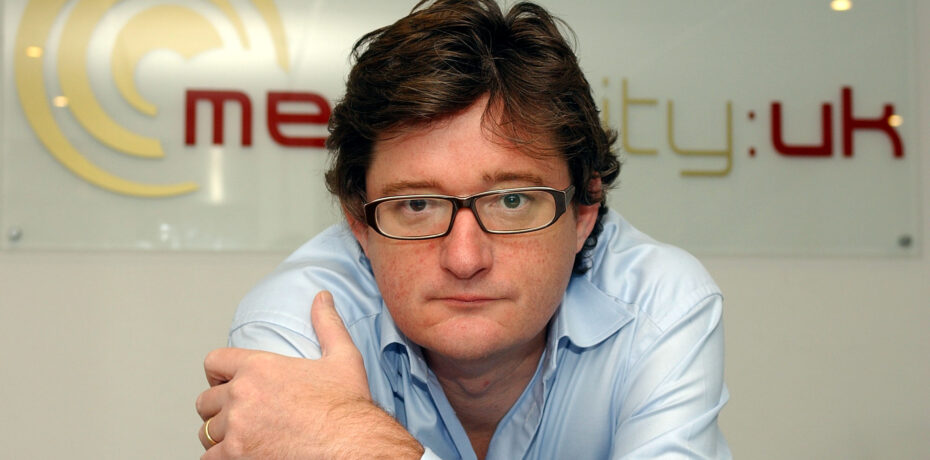Content management
The office agency world is waiting to hear what counts as a media occupier in Peel Holding's Media City. Brian Greasley, the project's newly appointed managing director, is the man who should know.
"Media is everything we consume that we don't eat," says Brian Greasley, the first managing director of Peel Media, the subsidiary of Peel Holdings set up to deliver the 200-acre Media City scheme in Salford Quays.
Greasley will be tasked with putting the media into Media City, a slippery sector that office agents have been struggling to define as they clamber to find occupiers for this headline project.
Computer game makers have evolved into interactive film producers, Apple uses content to sell electrical goods, banks are starting to use mobile phones to handle transactions; the terms of reference are as various as the channels on a bumper Sky package.
"Clearly we don't want a credit card call centre, that's not what we're about," says Greasley. "But Peel isn't short of property and if such a company approached us I'm sure we could accommodate it somewhere if not right here.
"We have people coming to us wanting to talk about taking space and we will not be short of the right occupiers once the message gets out of what's on offer here.
"We're about attracting great minds. The atmosphere for creating brilliant media ideas and products here, be it computer games or telecoms, will be unlike anywhere in the world."
The BBC will be the first tenant to occupy offices on the headland site fronting the Manchester Ship Canal and abutting the imposing Lowry and Imperial War Museum North. By now synonymous with Media City, the national broadcaster will begin operating from the first of three buildings in December 2010 with five departments fully relocated by the following year.
The BBC element accounts for 330,000 sq ft and is complemented in phase one by a five-acre piazza, speculative offices of 150,000 sq ft, a 50,000 sq ft media enterprise centre, a 200-bed three or four star hotel linked to the TV studios, and 300 apartments.
In total, 1.3m sq ft of offices will be built in the course of the next 10 to 15 years. When completed Media City is expected to generate £1.5bn annually to the North West economy, with over 15,000 employment opportunities, space for over 1,100 businesses, and 1,500 trainee positions every year.
Greasley, only weeks into the job but not lacking in confidence, sketches out the message that is forming within Peel Media: "We're open to everyone, large and small. If you are a one-man start-up and want access to the best technology and the right people to do business with, we will find you a place here. If you are a major employer who wants to be closer to a supply chain of workers and ideas this is the right environment for you."
Greasley 46, answered a Sunday Times Appointments advert in September and was in post by the start of December, a reflection both of the speed at which Peel moves when its hungry and the fact Greasley was freelancing and not tied down to a contract.
He will live during the week in a City Lofts flat in Salford Quays, overlooking the Media City building site and travel back to his family in Cheltenham at weekends.
A colourful CV includes a mouth-watering role as roving entrepreneur in residence for the venture capital outfit Apax, travelling the world hunting out good ideas.
While at Apax he founded I-Play, which made games and other content for mobile devices. Separately, he also founded Genie Internet, now part of BT Cellnet.
Based in the Pie Factory at the edge of Media City, already busy with TV studios and media-related suppliers, Greasley will start building his team with the appointment of a technical director.
The technical director is important to oversee the digital infrastructure of Media City, from high definition television studios to broadband cable into every apartment.
As the business plan takes shapes, Greasley wants to involve the property, media and wider business community with quarterly stakeholder conferences in the Lowry to provide updates on progress.
Peel is considering investing its own money in a media venture fund to encourage enterprise within the media park. Greasley expects established venture capitalists such as Apax to follow suit.
The North West Development Agency is considering creating a digital centre for the region's universities at Media City.
Advanced talks are ongoing with Salford University to relocate its arts, media and social studies faculty to the site. The university is currently deciding how many buildings and how much overall space is required. An initial requirement of 600,000 sq ft is believed to have reduced.
Talks are also ongoing with ITV Granada as its weighs up whether to sell up and relocate from Quay Street in Manchester city centre. A site next to the Imperial War Museum North has been reserved by Peel.
As such substantial questions over occupiers and the make-up of the project evolve and find their answers in the next few years, Greasley will be in charge of turning concepts into reality.
With the might of Peel, never afraid of a challenge, behind him and the anchor tenant in place, he has a strong starting chance.




